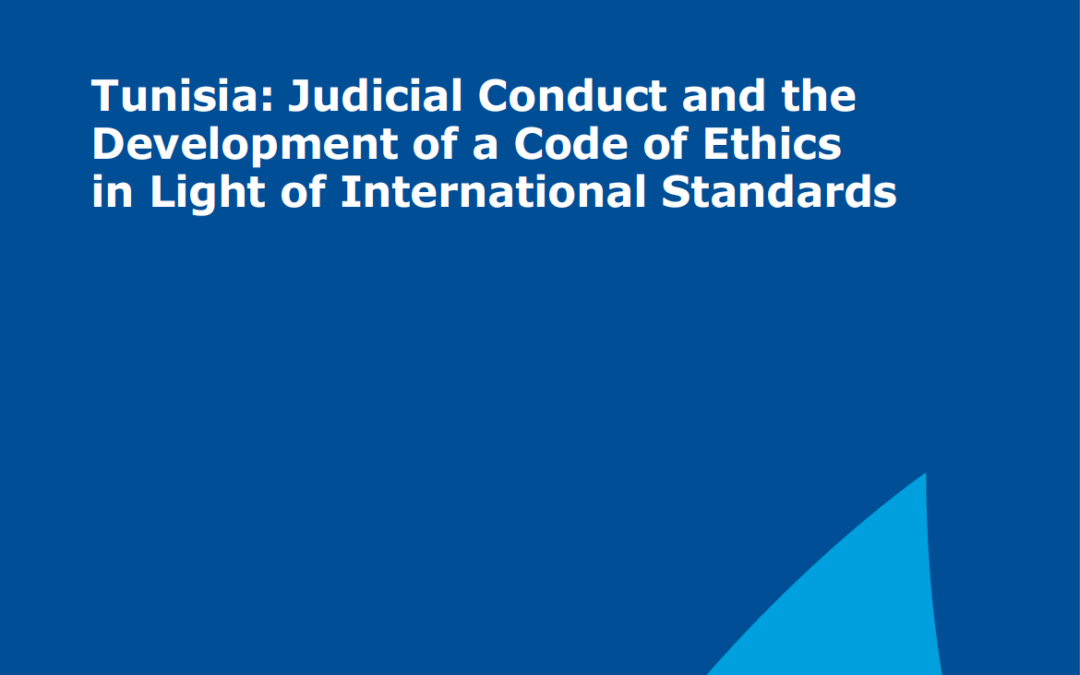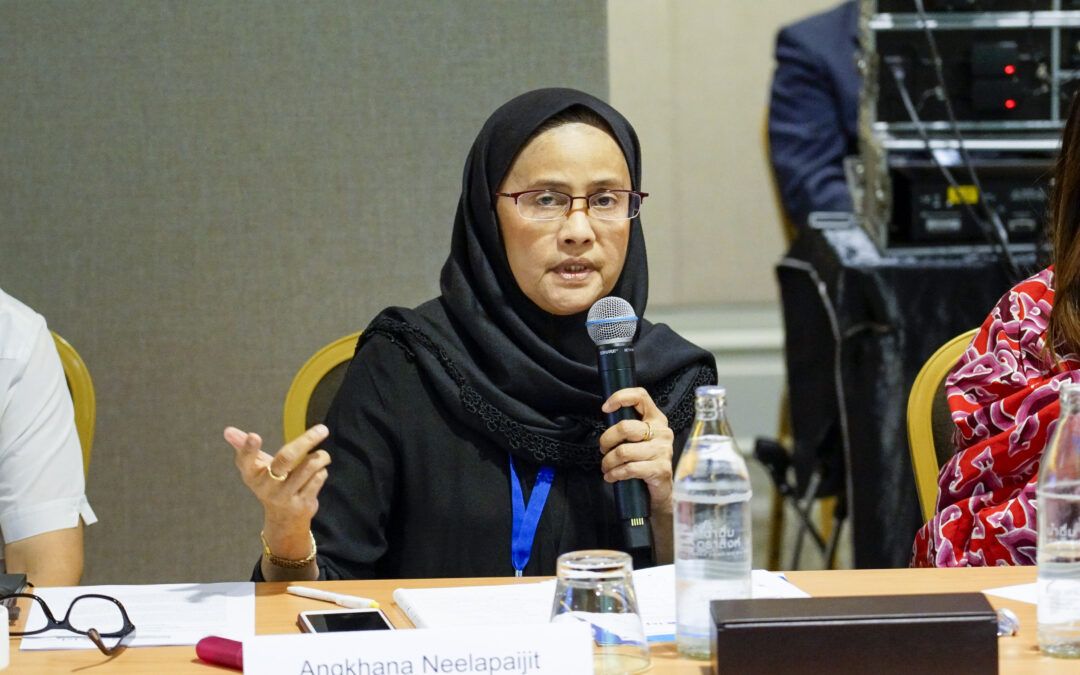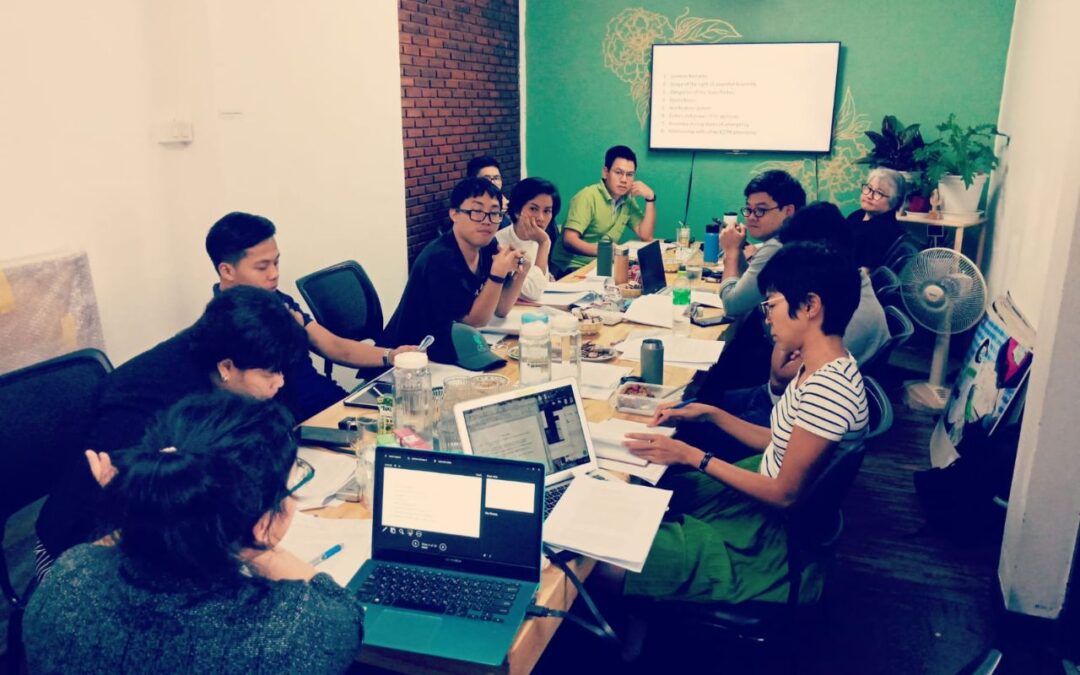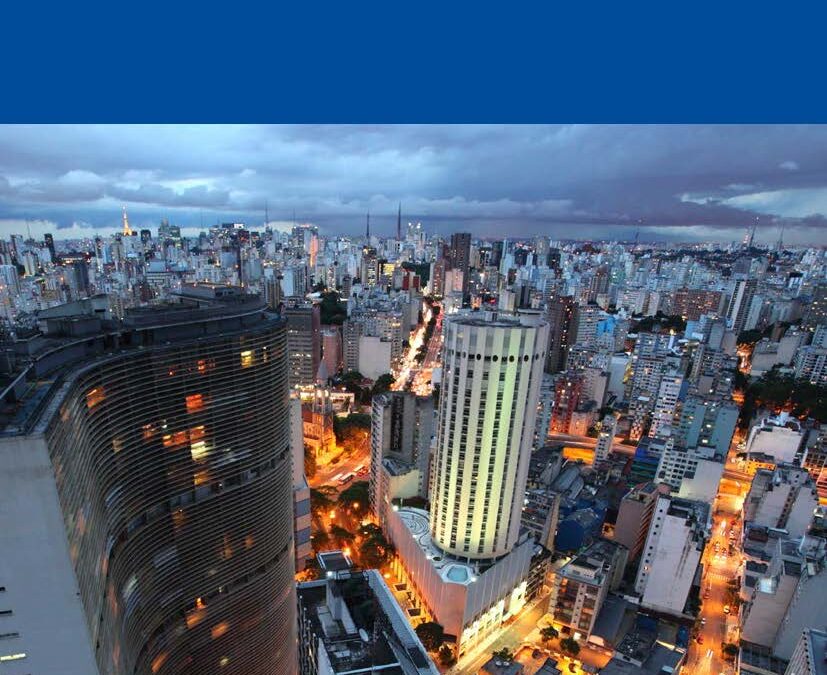
Nov 27, 2019
Tunisian authorities must ensure that the process of developing and adopting a Judicial Code of Ethics and Judicial Conduct in the country is inclusive and transparent, said the ICJ in a briefing paper released today in Tunis.
The Code must also align with international standards and be effectively and independently implemented to secure judicial independence and accountability, the memo Tunisia: Judicial Conduct and the Development of a Code of Ethics in Light of International Standards (available in English and Arabic), adds.
In the paper, the ICJ recommends the adoption of a clear, transparent and inclusive procedure for developing and adopting the Judicial Code, and for its content to conform to the UN-endorsed Bangalore Principles of Judicial Conduct.
“Adopting a Code of Ethics and Judicial Conduct is a unique opportunity for Tunisian authorities to bolster judicial independence and restore public confidence in judicial institutions,” said Saïd Benarbia, Director of the Middle East and North Africa Programme at the ICJ.
“The authorities should get both the process and the content right, and ensure that such a code provides detailed guidance to judges on what kind of conduct is expected of them,” he added.
The adoption of a Code of Ethics has the potential to remedy the shortcomings of the current legal framework on judicial independence and accountability.
Organic Law No. 67-29 on the Judiciary, the High Judicial Council and the Statute for Judges, even as modified by Organic Law No. 2013-13, does not adequately or sufficiently provide for the guarantees to uphold judicial individual independence, the criteria and procedures for recusal or disqualification, or the need to avoid use of one’s office for private gain.
This is particularly problematic given that the current disciplinary procedures are inconsistent with international standards and best practices for judicial independence and impartiality, including because of the role of the Minister of Justice in initiating such procedures.
Against this background, the ICJ calls on the Tunisian authorities to:
- Ensure that the Judicial Code is established in law as the basis on which judges will be held to account professionally;
- Ensure that the principles of independence, impartiality, integrity, propriety, equality, competence and diligence are clearly incorporated in the Judicial Code of Ethics in accordance with the Bangalore Principles and other relevant international standards;
- Amend Organic Law No. 67-29 to ensure that judges in Tunisia enjoy personal immunity from civil suits for monetary damages for improper acts or omissions in the exercise of their judicial functions; instead, in appropriate cases, persons who suffer losses as a result of such improper acts or omissions should be able to make a claim for compensation against the State itself;
- Ensure that the law and the Judicial Code clearly and precisely define the forms of misconduct that may lead to a judge’s discipline;
- Provide, in a manner consistent with independence of the judiciary, for individual judges to be held responsible, through disciplinary or criminal proceedings or both as appropriate, for perpetration of or complicity in violations of human rights, international humanitarian law and for judicial corruption; in this regard clearly prescribe the offences that could give rise to disciplinary liability for such acts or omissions, in line with international law and standards; and
- Ensure, in defining grounds for disciplinary action, that the fundamental rights and freedoms of judges are upheld and respected.
Contact
Saïd Benarbia, Director of the ICJ Middle East and North Africa Programme, t: +41.22.979.3817, e: said.benarbia(a)icj.org
Additional information
ICJ Commissioner Martine Comte led the delegation that met with different Tunisian authorities and justice actors this week in Tunis in order to present ICJ’s memo and discuss its findings and recommendations. The ICJ delegation met with Mr. Youssef Bouzeker, President of the Tunisian High Judicial Council, and other senior officials of the Tunisian Ministry of Justice and of the Tunisia Bar Association.
Tunisia-Code of Ethics-Advocacy-Analysis Brief-2016-ENG (full paper, in PDF)
Tunisia-judicial code-news-press release-2019-ARA (full story, Arabic version, in PDF)
Tunisia-Code of Ethics-Advocacy-Analysis Brief-2016-ARA (full paper, Arabic version, in PDF)

Nov 27, 2019 | News
Today, the ICJ condemned Thammakaset Co., Ltd’s use of the criminal defamation provisions of the Thai Criminal Code to harass former National Human Rights Commissioner Angkhana Neelapaijit.
“This action by Thammakaset is a textbook case of how defamation laws are used in Thailand to silence human rights defenders. It is clearly without any legitimate basis, and intended to harass and intimidate Khun Angkhana, who is a leading champion of human rights in Thailand and the region,” said Frederick Rawski, ICJ Asia Pacific Regional Director. “We hope that the Courts will dismiss this frivolous case at first opportunity.”
On 25 October 2019, Thammakaset Co. Ltd., a poultry farm in Lopburi Province, filed a criminal defamation suit under sections 326 and 328 of the Criminal Code against Angkhana Neelapaijit for two posts she shared that contained links to press statements of 16 organizations, including the ICJ, and Fortify Rights.
The statements cited in the warrant as the basis for the action were a post on 3 December 2018 in which Angkhana Neelapaijit re-tweeted an ICJ link to a joint statement co-signed by 16 organizations, including the ICJ. The statement contained a link to a short film in which former employees spoke out about alleged labor abuses; and a post on 28 June 2019 which included a link to a Fortify Rights’ news release containing the same link. The film refers to a previous defamation complaint brought by Thammakaset against 14 of its former workers, and called upon the authorities to drop criminal defamation charges against them and decriminalize defamation in Thailand. Thammakaset claimed that the film was defamatory.
Criminal defamation, under sections 326 of the Criminal Code, carries a maximum sentence of one year of imprisonment, a fine of up to 20,000 Baht (approx. USD 640) or both. Section 328 criminalizes defamation “by means of publication” with up to two years’ imprisonment and a fine of up to 200,000 Baht (approx. USD 6,400).
Thailand is party to the International Covenant on Civil and Political Rights (ICCPR), which guarantees the right to freedom of expression. The UN Human Rights Committee, the supervisory body that provides the authoritative interpretation of the ICCPR, has called on States that criminalize defamation to abolish criminal defamation laws and reserve defamation for civil liability.
“The criminal defamation provisions in the Criminal Code have been repeatedly invoked for nefarious ends, such to target persons seeking to bring public attention to human rights violations, including by business enterprises. They need to be removed from the Criminal Code as a matter of urgency,” said Rawski. “The imposition of criminal penalties for speech, even allegedly defamatory speech, is disproportionate and risks having a ‘chilling effect’ on the exercise of freedom of expression.”
Further reading
Thailand: Drop defamation complaints against human rights defenders Nan Win and Sutharee Wannasiri
Thailand: ICJ and LRWC submit amicus in criminal defamation proceedings against human rights defenders Nan Win and Sutharee Wannasiri
Contact
Frederick Rawski, ICJ Asia-Pacific Director, t: +66 64 478 1121; e: frederick.rawski(a)icj.org
***
Download the press-release with additional information in English and Thai. (PDF)

Nov 27, 2019 | Advocacy, News
On 26 November 2019, the ICJ, jointly with the Centre for Civil and Political Rights (CCPR Centre), hosted a round-table discussion on the right to peaceful assembly in Thailand. The discussion was held at the office of Thai Lawyers for Human Rights (TLHR).
Fifteen lawyers, members of civil society organizations and academics attended the discussion.
The discussion began with an introduction to the UN Human Rights Committee’s draft General Comment No. 37, which when revised and adopted will constitute an authoritative interpretation of the right to freedom of peaceful assembly, as guaranteed under article 21 of the International Covenant on Civil and Political Rights (ICCPR). Thailand is a State party to the ICCPR.
The UN Human Rights Committee – the body mandated to interpret and supervise the implementation of the ICCPR – made the draft General Comment available for all stakeholders to review between November 2019 and 14 February 2020. The Committee in its draft considers the obligations of States parties in respect of such right to peaceful assembly, including permissible limitations and duties and powers of law enforcement agencies.
During the meeting, participants discussed about Thailand’s existing law governing the exercise of the right to peaceful assembly – including the 2017 Constitution of the Kingdom of Thailand and the 2015 Public Assembly Act. The discussion also focused on comments on the draft General Comment that the participants may submit to the UN Human Rights Committee, and advocacy strategies to strengthen Thailand’s legal frameworks once the draft General Comment is adopted by the UN Human Rights Committee.
Participants identified challenges posed by in the implementation of certain domestic laws, particularly the Public Assembly Act, which may result in unnecessary and disproportionate restrictions on the right to freedom of peaceful assembly in Thailand. These included the lack of a clear definition of “an assembly”; identification of “no-go” zones for protestors; problems arising from the use of notification systems where a failure to notify the authorities of an assembly was used as basis to render participation in the assembly unlawful and for dispersing the assembly; and overbroad powers delegated to authorities to impose conditions for assemblies regulating the time, place and manner of assemblies.
At the meeting’s conclusion, participants considered ways of provided input on the draft General Comment to the UN Human Rights Committee. They also strategies to work to bring existing Thai laws in compliance with international laws and standards that regulating the right to freedom of peaceful assembly.

Nov 26, 2019 | News, Publications, Reports, Thematic reports
At the launch of a report on companies’ practices to address complaints relating to their negative impacts on human rights, the ICJ said that many companies have failed to establish and implement effective operational-level grievance mechanisms (OGMs).

Nov 26, 2019 | Communiqués de presse, Nouvelles
Trois femmes d’exception, Huda Al-Sarari, Norma Ledezma et Sizani Ngubane, sont les finalistes du Prix Martin Ennals 2020, reflet de la place désormais prépondérante occupée par les femmes dans la défense des droits humains. La CIJ est membre du jury.
Au Yémen, Huda Al-Sarari dénonce l’existence de prisons secrètes et nombreux cas de torture.
Au Mexique, Norma Ledezma lutte contre les féminicides et cas de disparitions.
En Afrique du Sud, Sizani Ngubane milite pour l’accès des femmes à l’éducation et à la terre.
Trois femmes nominées: une première
Le Prix Martin Ennals récompense chaque année des défenseur-euse-s des droits humains issus des quatre coins du globe et qui se distinguent par leur profond engagement – souvent, au péril de leur vie. Pour l’édition 2020, le Jury a nominé pour la première fois trois femmes qui défendent les droits fondamentaux de leurs communautés, dans des contextes sensibles.
« La Fondation Martin Ennals est fière de rendre hommage au travail courageux de trois femmes. Pour le Prix Martin Ennals 2020, le choix de notre Jury reflète l’élan mondial toujours plus important des individus -quel que soit leur genre- engagés pour le respect des droits humains et des droits des femmes en particulier », note Isabel de Sola, Directrice de la Fondation Martin Ennals.
Les finalistes 2020 « Les finalistes du Prix Martin Ennals 2020 œuvrent sur des continents distincts, mais les trois ont en commun leur résilience, leur détermination, leur très grande rigueur et enfin, l’impact positif et concret de leur travail », précise Hans Thoolen, Président du Jury.
Les finalistes
Au Yémen, alors que le conflit fait rage depuis 2005, Huda Al-Sarari, une avocate yéménite a dévoilé l’existence de nombreux centres de détentions secrets où les pires violations des droits humains ont été commises : tortures, disparitions ou encore exécutions sommaires.
En Afrique du sud, les femmes font face à une discrimination qui se traduit par une violence de genre largement répandue. Dans les communautés rurales, elles sont fréquemment expropriées de leurs terres, privées d’éducation et d’accès à la justice. Sizani Ngubane a fédéré une organisation de plus de 50’000 femmes issues des zones rurales de son pays et se bat avec succès depuis plus de 40 ans pour la reconnaissance de leurs droits.
Au Mexique, l’état de droit chancelant, la population civile paie le prix fort de la violence et de l’impunité généralisées qui en résultent. Les femmes sont les premières victimes, avec plus de 3’500 féminicides commis chaque année. Norma Ledezma, mère d’une des victimes, met toute son énergie pour accompagner les familles de l’état de Chihuahua dans leur accès à la justice.
Les finalistes ont été sélectionnées par les dix organisations membres du jury: la CIJ, Amnesty International, Human Rights Watch, Human Rights First, International Federation for Human Rights, World Organisation Against Torture, Front Line Defenders, EWDE Germany, International Service for Human Rights et HURIDOCS.
Le Prix Martin Ennals 2020 sera décerné à l’une des trois finalistes le 19 février 2020 lors d’une soirée publique et retransmise en direct. L’événement est organisé par la Ville de Genève qui, fidèle à son engagement en faveur des droits humains, soutient le Prix depuis de nombreuses années.
Contact
Olivier van Bogaert, Directeur Médias & Communication, représentant de la CIJ dans le jury du MEA, t: +41 22 979 38 08 ; e: olivier.vanbogaert(a)icj.org
Universal-MEA2020bios-News-2019-FRE (bios complètes des finalistes, PDF)








